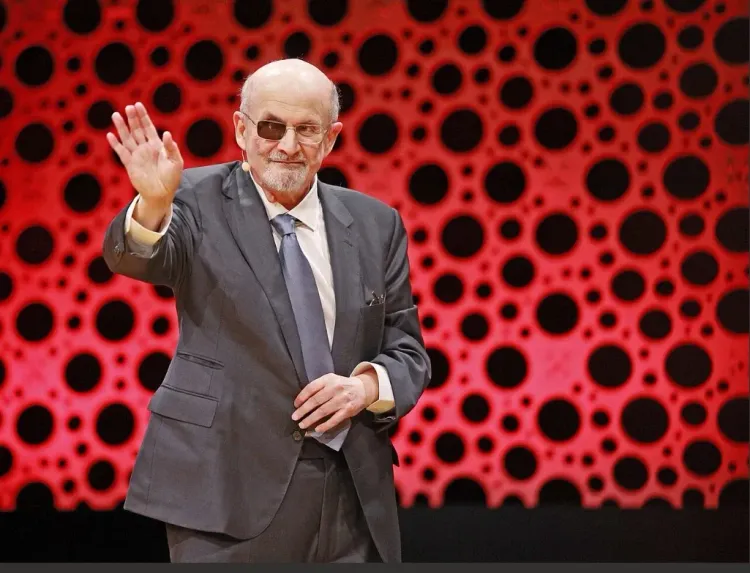What Sentence Did the Man Who Blinded Rushdie Receive?

Synopsis
Key Takeaways
- Hadi Matar received a 25-year prison sentence for the attack on Rushdie.
- Rushdie lost vision in his right eye due to the stabbing.
- The attack was influenced by a fatwa issued in 1989.
- Matar's actions have led to discussions about freedom of speech.
- Federal terrorism charges are still pending against Matar.
New York, May 17 (NationPress) The individual responsible for the attack on author Salman Rushdie, resulting in him losing vision in one eye, has been sentenced to 25 years in prison, as confirmed by the local prosecutor.
Judge David Foley delivered the sentence to an unrepentant Hadi Matar during a court session in Mayville, New York State, where the incident occurred, for attempted murder.
Matar, aged 27, was found guilty under state laws in February and is also facing additional federal terrorism charges.
He received an additional sentence of seven years that will run concurrently with the main prison term.
The district prosecutor for Chautauqua County, Jason Schmidt, expressed satisfaction with the judge's decision following the sentencing.
Matar's attorney, Nathaniel Barone, indicated plans to appeal the ruling.
The attack took place in August 2022 when Matar rushed the stage at the Chautauqua Institution, where Rushdie was preparing to give a speech. Rushdie, who has faced a fatwa from Iran's Ayatollah, was stabbed multiple times, leading to the loss of his right eye, for which he now uses an eye patch.
During the assault, Henry Reese, who supports persecuted writers, was also injured.
In a memoir released in 2024 titled "Knife", Rushdie recounted his experiences during and after the attack.
The roots of the attack trace back to 1989 when Iran's Ayatollah Khomeini issued a fatwa calling for Rushdie's death, claiming that his novel, "The Satanic Verses", was blasphemous.
This declaration forced Rushdie into hiding under the protection of British authorities for several years until he relocated to New York and began to appear publicly again.
Before his sentencing, Matar addressed the judge, asserting that Rushdie is a bully who seeks to intimidate others, a sentiment he expressed in a disjointed statement discussing freedom of speech and religion.
Schmidt commented on the irony of Matar's perspective, stating, "His value system is that he can impose his own sense of justice and sentencing upon somebody who violates, you know, his value system."
Barone mentioned that Matar wanted the court to understand his strong feelings regarding his Muslim faith, noting that while some may sympathize with Matar, others within the Shia community believe, "What happened is wrong."
When federal charges were brought against Matar in July, Merrick Garland, then the Attorney General, described the attack as "an act of terrorism in the name of Hezbollah, a designated terrorist organization aligned with the Iranian regime."
Barone anticipated a hearing in the case in July and expected the trial to commence early next year.
The legal system in the U.S. comprises distinct and occasionally overlapping federal and state laws, with separate court systems where individuals may face different charges.









